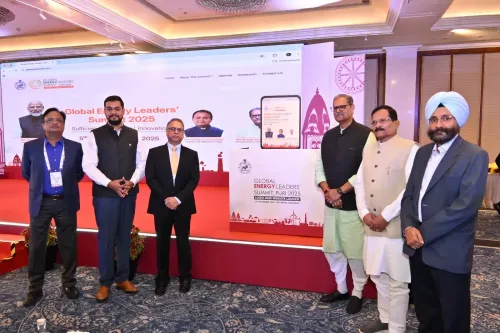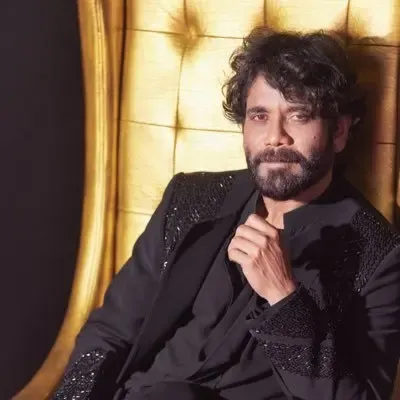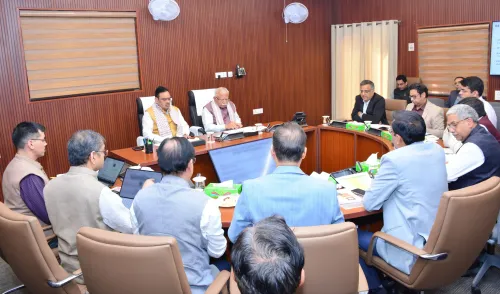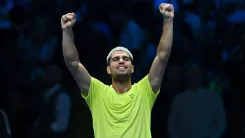Should India Teach the World How to Manage Diversity?
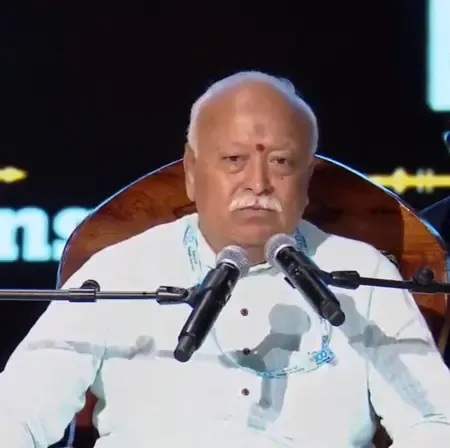
Synopsis
Key Takeaways
- India should lead in diversity management.
- Unity and cultural identity are vital for nation-building.
- Small industries enhance employment and productivity.
- Environmental conservation is essential for societal harmony.
- Everyone shares the responsibility for a prosperous future.
Jaipur, Nov 13 (NationPress) The Chief of the Rashtriya Swayamsevak Sangh (RSS), Mohan Bhagwat, stated on Thursday that India should guide the world in managing diversity, asserting that "the world lacks the systems that India has developed."
He spoke to prominent entrepreneurs from Rajasthan during the event titled "Entrepreneur Dialogue: Towards New Horizons," part of the '100 Years of the Sangh Yatra Series' held at the Prithviraj Chauhan Auditorium in Jaipur.
This gathering commemorates the centenary of the RSS.
In his speech, Bhagwat underscored the importance of firsthand experience before forming opinions about the Sangh. "To understand the Sangh, come to the Shakha and participate in whatever way suits you," he expressed.
The RSS aims to unite society so that all individuals serve the nation with genuine and selfless dedication. He remarked, the centenary is not merely a celebration, but a chance to ponder the future and broaden the Sangh's initiatives.
"Creating a glorious and leading nation is not the responsibility of one individual alone. Various leaders, slogans, policies, governments, and organizations like the Sangh can contribute, yet it is a collective responsibility we all share," Bhagwat stated.
He reminisced about the organization's origins, mentioning that the RSS was not established around a single issue. The founder, Keshav Baliram Hedgewar, was a revolutionary imprisoned twice for his involvement with the Indian National Congress's movements, both before and after founding the Sangh.
As Bhagwat explained, Hedgewar believed that India's true liberation required addressing the social ills that had afflicted it for 1,500 years. He recognized that this could only be realized by uniting the Hindu community, leading him to establish the Sangh after a decade of contemplation and experimentation.
RSS Chief Bhagwat clarified that the Sangh was not formed to oppose anyone, but to bring society together. "In India, our identity is Hindu, which unites everyone. Our nation has consistently been connected by culture rather than state. Even during times of numerous kingdoms or foreign rule, we remained one nation," he noted.
He emphasized that the primary mission of the Sangh is to develop individuals and organize volunteers who serve society in various ways.
Looking ahead, he indicated that the next stage of the Sangh's efforts would focus on ensuring that the whole society acts in the nation's interest. Bhagwat called for an awakening of the noble spirit within the Hindu community and the promotion of social harmony: "Temples, water resources, and crematoriums should be accessible to all. Families should gather weekly to share meals and worship together, honoring their languages and traditions. We must also take the lead in environmental conservation—saving water, planting trees, and reducing plastic waste."
He encouraged citizens to foster a sense of self, promote Swadeshi, and uphold civic discipline by adhering to laws and the Constitution.
"Cooperation, agriculture, and industry are the foundations of our development," he remarked. "Agriculture, trade, and industry should function interdependently to ensure mutual progress."
He highlighted the critical role of small and medium enterprises in decentralizing the economy, urging larger industries to cultivate a supportive environment for them. “Small industries should boost employment, skills, and productivity. True prosperity for the nation will come from industries that prioritize happiness alongside business success," he concluded.
The program was opened by Ramesh Chandra Agarwal, Rajasthan Regional Sanghchalak (Chief), and was moderated by Hemant Sethia.


